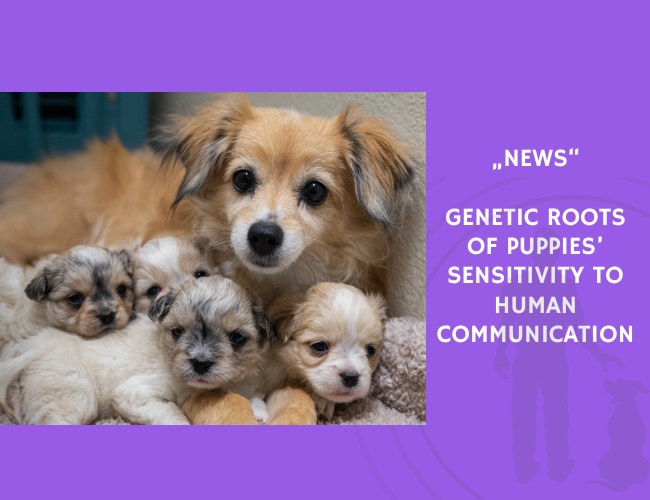Emily E. Bray et al. (2021) conducted one of the largest studies of puppy cognition to date, testing 375 eight-week-old puppies across multiple social-cognitive measures. The findings provide strong evidence that dogs are biologically prepared for communication with humans.
The researchers found that puppies could successfully follow diverse human gestures and cues from the very first trial, suggesting that these abilities did not depend on prior experience or learning. Importantly, heritability analyses revealed that genetic factors explained over 40% of the variation in point-following skills and attention to human faces. This indicates that social sensitivity is not only an early-emerging trait but also one that is strongly shaped by evolutionary pressures.
These findings have profound implications: they suggest that the dog’s remarkable ability to engage with humans is hardwired by domestication, and that selective breeding has played a critical role in reinforcing these social communication traits. This research highlights how genetics and evolution contribute to the unique interspecies bond between dogs and humans.
Source: Bray, E. E., Gnanadesikan, G. E., Horschler, D. J., Levy, K. M., Kennedy, B. S., Famula, T., & MacLean, E. (2021). Early-emerging and highly heritable sensitivity to human communication in dogs. Current Biology, 31, 3132–3136.e5. Authors: Emily E. Bray et al. Citations: 49.










